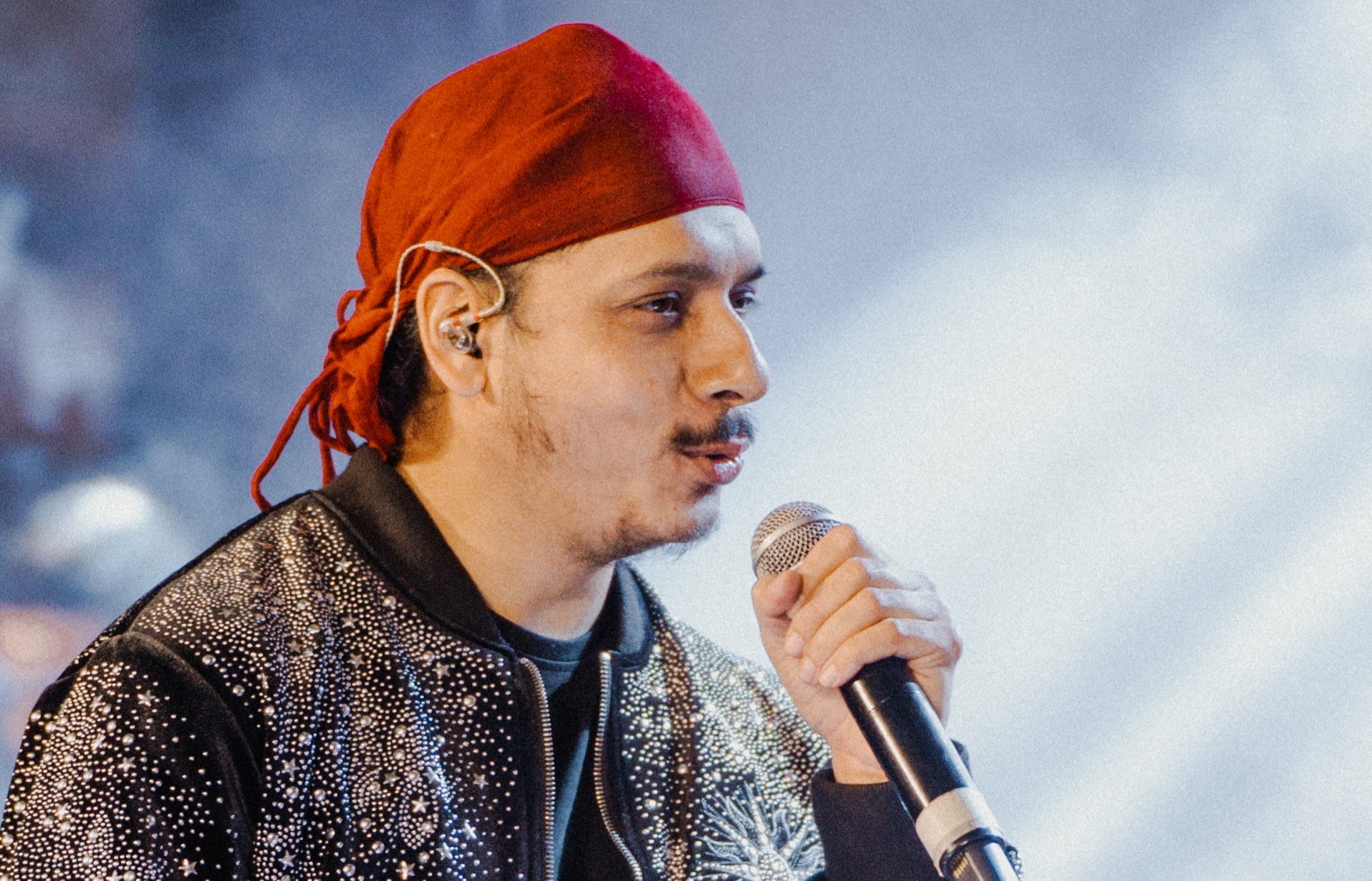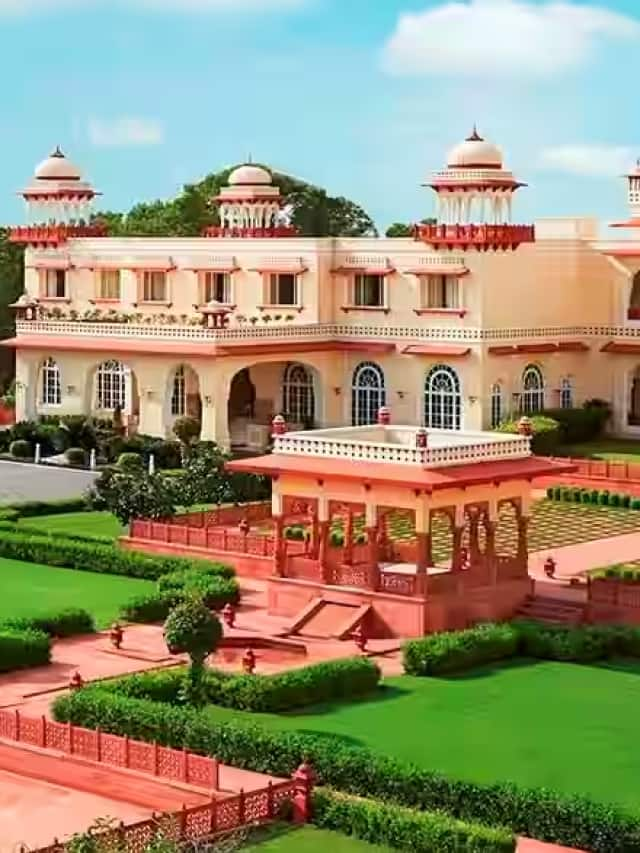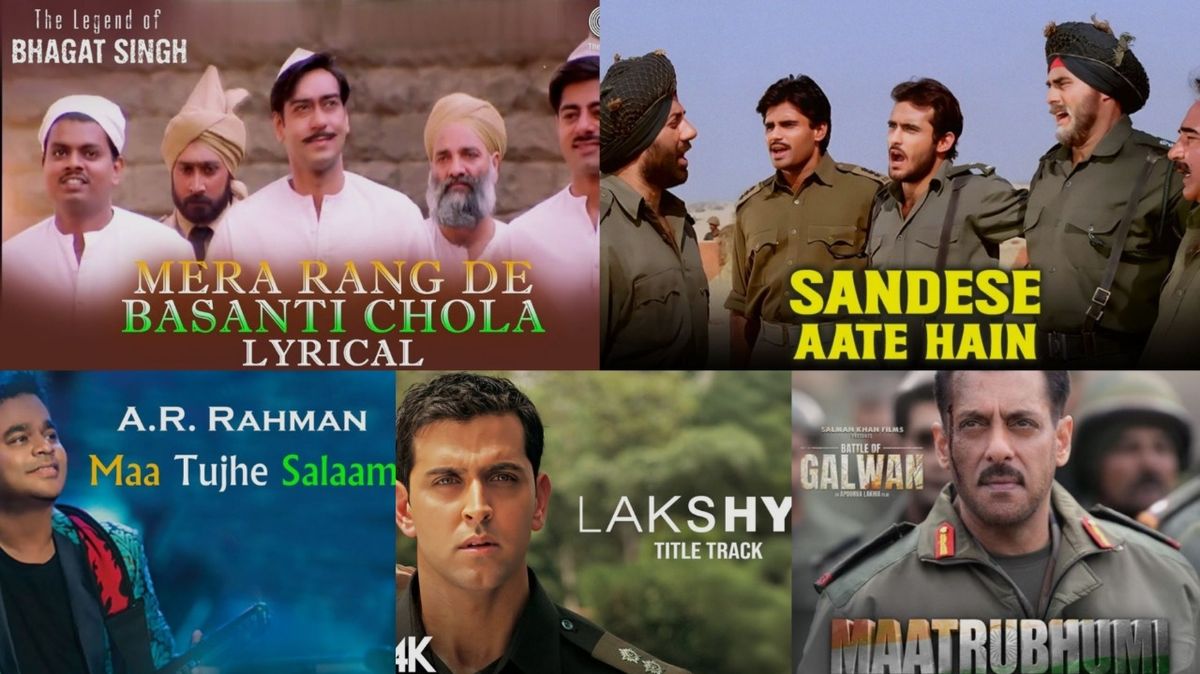
“Language should never be a barrier for a musician” – Gulraj Singh
When you have a look at the filmography of music composer, producer and singer Gulraj Singh, the one thing you realize is that he has not restricted himself to any language. While a lot of Gulraj’s work has happened in the Hindi film industry, he has also traversed through other industries and films made in different languages quite smoothly. Gulraj recently had a release in the Marathi industry in the form of ‘Ata Thambaycha Naay!’.
The film, which features Bharat Jadhav, Siddhartha Jadhav, Ashutosh Gowarikar, Prajakta Hanamghar, Kiran Khoje and Rohini Hattangadi in the lead roles, released in theatres on 1 May, 2025. Apart from composing all the songs for the film, Gulraj has also done the background score. A while back, Gulraj had worked on ‘Paani’, another Marathi film, which had won the National Film Awards for Best Film on Environment Conservation. The film released in the theatres on 18 October last year and garnered further attention when it started streaming on Amazon Prime Video.
How was the experience of working on ‘Ata Thambaycha Naay!’?
It was a wonderful experience. When you are given the responsibility of doing all the songs, background score and designing the entire soundscape for a film, the process becomes all the more enjoyable. Shivraj Waichal, the director of the film, had a clear vision and was very sure about how the music had to be. I got the opportunity to work with some incredible singers and musicians while working on this film.
A couple of months ago, you won the Best Music Director award at the Zee Chitra Gaurav Awards for ‘Paani’. You also won the Maharashtra Times Sanmaan Award for the same film.
I feel truly grateful about all the love and accolades the soundtrack of ‘Paani’ has received over the last few months. Winning these prestigious awards is a huge honour. When you win an award as an artist, you feel more inspired to do better work. This was the 25th anniversary of Zee Chitra Gaurav Awards. The same was the case with the Maharashtra Times Sanmaan Award. Because of this reason, winning these awards became even more special.
You work in Marathi cinema has received a lot of appreciation over the years. You had earlier won a Filmfare (Marathi) Award for ‘Unaad’.
Yes, that’s right! I had won the Filmfare Award for the Best Background Score for ‘Unaad’. Working on that film, too, was a very special experience.
‘Paani’ addresses the issue of water scarcity. The film traces the journey of Hanumant Kendre, a real-life activist, who worked towards improving the water supply in his drought-prone village. Did the subject attracted you towards this film?
Very much! When I was offered this film, I was very excited because it was based on a true story. It concludes on a beautiful note. The film also has an innocent love story running through it. The entire story, in fact, revolves around this love story. Love is not only about two individuals adding value to each other’s lives. Here, you see how the love shared by two individuals benefits several villages. The film is based on a real incident and that’s what makes it all the more special. Adinath has been a good friend of mine. We had worked with each other in the past as well. We would always be on the same wavelength and that is why everything worked out so beautifully.
Unlike Hindi cinema, Marathi film music continues to be steeped in Indian melody. In Marathi films songs, one sees Indian instruments being used extensively.
That’s right! I got the opportunity to do a bunch of Marathi films in the last few years. The Marathi audience is amazing. The last Marathi film I worked on was ‘Unaad’. A lot of people who heard the ‘Unaad’ album told me that it had a fresh sound to it. That was a huge compliment for me. I have received similar feedback on ‘Paani’. Though the film is based in a village, the music is a blend of earthy sounds and contemporary music production. As we kept working on the score, we found places where songs could be placed. Right towards the beginning of the film, there is a song called ‘Naba Khali’. It was first developed as a music piece that would be a part of the background score. Once we started working on it, we realized it was a long situation and we could incorporate a song here.
Apart from directing the film, Adinath M. Kothare has played the lead in it. Interestingly, he has also written two songs in the film.
Adinath and I have a common trait. Both of us are perfectionists. We get into minute details and keep working on things until we feel we have got them right. One day, after finishing some work on the music of the film, we went home. Suddenly, in the night, Adi called me up and said we should try some other lyrics for the song. We did that and it worked well for the song. On another occasion, we were jamming in the studio. I was playing the keyboard, humming the tune and Adi was writing the lyrics. We locked the tune and lyrics and felt the song was sounding good. When we met again after a few days, I said, “let’s try something else.” He asked, “what is wrong with this?” We tried something else and locked it when both of us were happy with it. This was the song which Shankar (Mahadevan) bhai sang. Today, I feel very happy to see that the song has been received very well. This was the last song we made for the film. Everybody loved this song so much that they said we should open the film to the audience through it.
One of the best qualities of Adi is that he is always open to new ideas. When I told him that we should do a title track, he considered the idea. He asked me how we should go about it. We did not have enough time to reach out to a lyric writer and get him to write the song. Adi was familiar with the story and had spent a lot of time studying the music of that region. If you closely listen to the kind of words he has used, you will realize they are true to the story and region which the film is set in. He is passionate about every aspect of filmmaking. Our tastes and sensibilities are similar. He was very appreciative of the music I had made for him in the past. When you work with people who have similar sensibilities and there is mutual respect, work becomes smooth.
Manoj Yadav, somebody you frequently collaborate with, has written two songs.
We tried some other lyricists but things were not working out. Manoj is like an elder brother to me. Finally, he came to our rescue. He wrote these two songs beautifully. He is an incredible lyrics writer. He not only comes up with a great thought but also pays a lot of attention to phonetics. A lot of times, I write some gibberish words to give the lyricist an idea about what I want. As a composer, you end up putting some gibberish words that have a certain sound. While getting proper lyrics written, you wish to retain those sounds. Manoj always manages to find a word that is close to that syllable that would have some meaning and thought in it. As individuals, our thoughts are aligned with each other. Manoj has also written all the songs for ‘Ata Thambaycha Naay!’. Though Marathi is not his mother tongue, he has grown up in Maharashtra and therefore, understands the language very well.
You have been working with Shankar Mahadevan for years. How was it getting him to sing the title track of ‘Paani’?
Shankar bhai has been one of my gurus. I have learnt so much from him and his music. I have worked with him for so many years. I have played gigs with him for almost ten years now. Prior to that, I had started working on his film projects as a keyboardist and arranger. Even today, I continue to work with him, Ehsaan and Loy. To have him sing my composition is a blessing. He adds so much value to a song as an artist.
You have been credited as a vocalist on three songs on the ‘Ata Thambaycha Naay!’ album. You lent your voice to two songs from ‘Paani’. How do you arrive at a decision to sing a song?
I usually don’t sell my voice. I always look at myself as a composer-singer. I sing my compositions as a cue track. I play it to the singer who will sing the final version. I try to give it my best shot so that it represents the track authentically. Sometimes, the director says, “let’s keep your voice”. This is the reason why my voice, at times, gets retained. I had a wonderful time recording my vocals for ‘Tujhya Sathin’. My co-vocalist on the track was Shashaa Tirupathi. She did a fabulous job with the vocals. I believe Shashaa is one of the best singers we have today. For ‘Nabha Paathi’, we were trying to get a singer on board but we were not able to connect with him. We didn’t have much time on our hands, so Adi asked me to dub it myself. I try to sing the cue track with sincerity as I feel it should represent the feel of the song. I never take the final call regarding my voice being retained for a song. There are times when I feel my voice is working well for a song but I let others take the decision.
One of the most beautiful but underrated film songs last year was ‘Saathiya’ from ‘Yudhra’. You had produced the track along with DawGeek.
DawGeek had already worked a lot on the track and done many wonderful things with it. I was brought on board to do the orchestral arrangements and create the ambient synth parts. I remember Ehsaan had shared the song with me. When I heard it, I told him that the track is beautiful and does not need anything added to it. Ehsaan, however, felt I could bring something to it. They wanted to make the song sound bigger in some areas. That is why they wanted me to add an orchestral sound and ambience feel in parts.
What are you doing next?
I did the background score and a song for Boman Irani sir’s directorial debut ‘Mehta Boys’. It was screened in some festivals and received a very positive response. It started streaming on Amazon Prime Video a couple of weeks ago. I have done the songs and background score for a film titled ‘Suryaasth’. It has been directed by Abhishek Ghosh and features Lara Dutta and Patralekhaa in the lead roles. It is a thriller and boasts of a very interesting story. I have also worked on a Malayalam film called ‘Achappa’s Album’. It is a children’s film and shall mark my debut into the Malayalam film industry. I have also done the background score for a film directed by Umesh Shukla.
Is the experience of working on a Marathi film different from doing a Hindi film?
More than anything, doing a Marathi film is always an emotional experience for me. I have been born and raised in Maharashtra. My mother was a Maharashtrian. In my early days as a musician, I did a bunch of Marathi local shows as a keyboardist. I used to play Marathi songs with some fine artists.
When one looks at your discography, one feels language has never been a barrier for you.
Language should never be a barrier for a musician. I feel happy to get the opportunity to work across different film industries and make songs in different languages. One of my upcoming projects is a Gujarati film. It will come out in the next few months. It is directed by Viral Shah who made the National Award winning film ‘Kutch Express’.
Publisher: Source link




